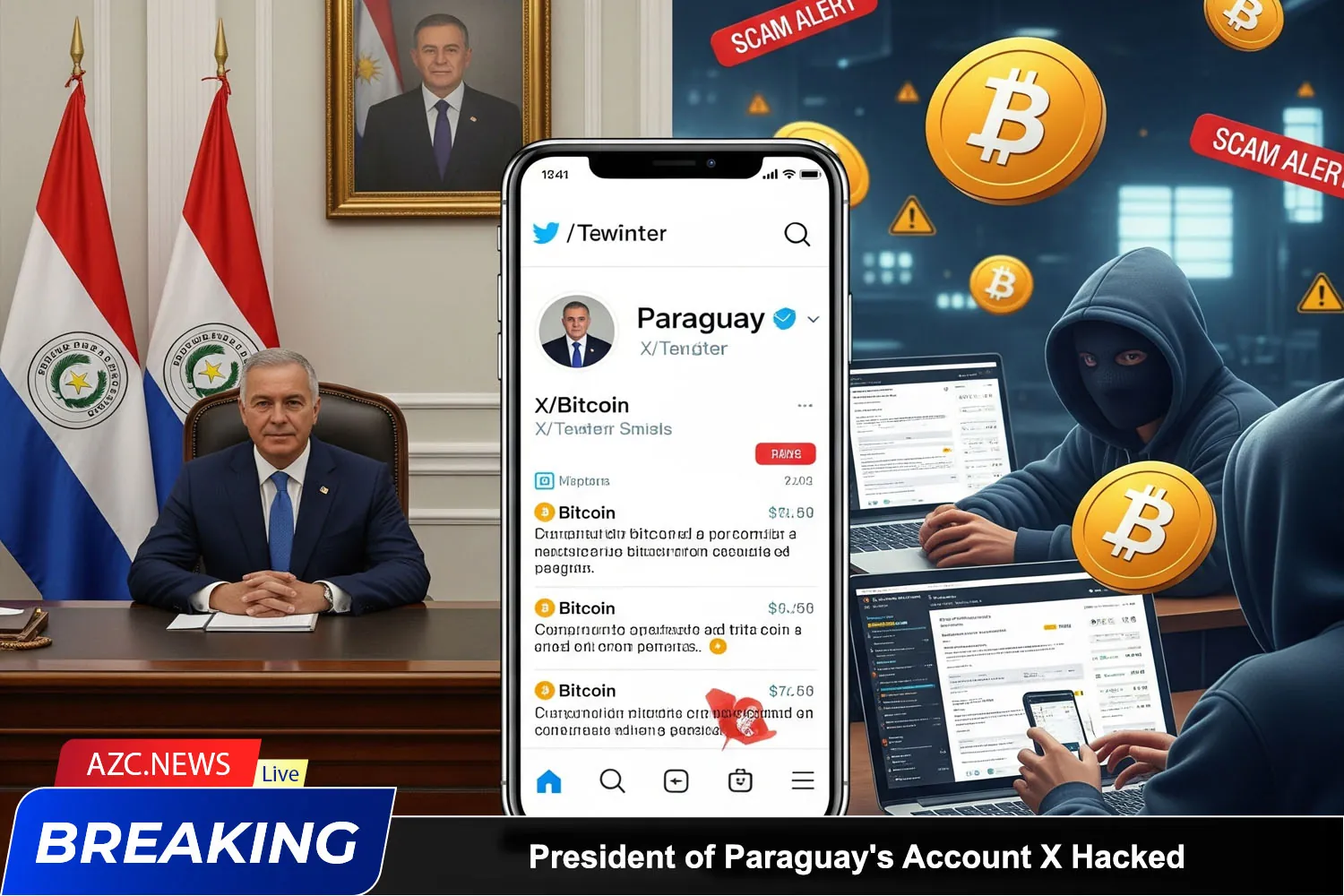Paraguay President’s X Account Hacked
In the early hours of June 10, Paraguay’s President Santiago Peña’s X account unexpectedly became the center of attention when it posted a series of shocking messages: declaring Bitcoin as legal tender, establishing a $5 million Bitcoin reserve fund, issuing Bitcoin bonds, and even calling on citizens to contribute to a Bitcoin wallet with a tempting invitation. Even more suspiciously, these posts were written in English, completely contrasting with Peña’s previous posts in Spanish—the official language of Paraguay. This anomaly immediately stirred up the online community.

Just a few hours later, the Paraguayan presidency confirmed that Peña’s account had been hacked, and all content related to Bitcoin was fabricated. Some humorous comments sarcastically suggested that if the hackers wanted to pull off a more convincing scam, at least they should learn to write Spanish correctly!
Related: SEC Considers Exemption Framework to Boost Crypto Innovation
Quick Response from the Government
Immediately following the incident, the Paraguayan government issued an urgent statement urging citizens to disregard the posts from the compromised account. The national cybersecurity agency quickly coordinated with the X platform to investigate the source of the attack and restore control of the account. These efforts demonstrate a strong commitment to crisis management and protecting the image of the head of state.
Despite the shock, the hack of President Peña’s account is not the first of its kind. Over the years, the social media accounts of many powerful figures have become targets for hackers. A similar incident caused a stir in 2020 when numerous high-profile accounts on X—from Elon Musk, Barack Obama, Joe Biden, and Bill Gates to corporations like Apple and Uber—were simultaneously attacked. All were exploited to spread a familiar scam: promising to double funds if users transferred Bitcoin to a designated wallet.
What is concerning is that, despite similar incidents occurring multiple times, past lessons have not been enough to prevent them entirely. Scams are becoming increasingly sophisticated, and social media remains a fertile ground for hackers to exploit investors’ trust.







